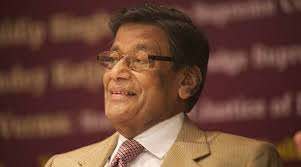
The Attorney General for India, KK Venugopal, has granted consent to initiate contempt of court proceedings against comic illustrator Rachita Taneja, for her tweets on the bail granted to Republic TV editor-in-chief Arnab Goswami in an abetment to suicide case.
Daily Current Affairs Quiz 2020
Key-Points
The Contempt of Courts Act, 1971, lays down the law on contempt of court. Section 15 of the legislation describes the procedure on how a case for contempt of court can be initiated.
In the case of the Supreme Court, the Attorney General or the Solicitor General, and in the case of High Courts, the Advocate General, may bring in a motion before the court for initiating a case of criminal contempt.
However, if the motion is brought by any other person, the consent in writing of the Attorney General or the Advocate General is required. If the AG denies consent, the matter all but ends.
The objective behind requiring the consent of the Attorney General before taking cognizance of a complaint is to save the time of the court.
The AG’s consent is mandatory when a private citizen wants to initiate a case of contempt of court against a person. However, when the court itself initiates a contempt of court case, as it did in the case of Prashant Bhushan recently, the AG’s consent is not required.
This is because the court is exercising its inherent powers under the Constitution to punish for contempt and such Constitutional powers cannot be restricted because the AG declined to grant consent.





